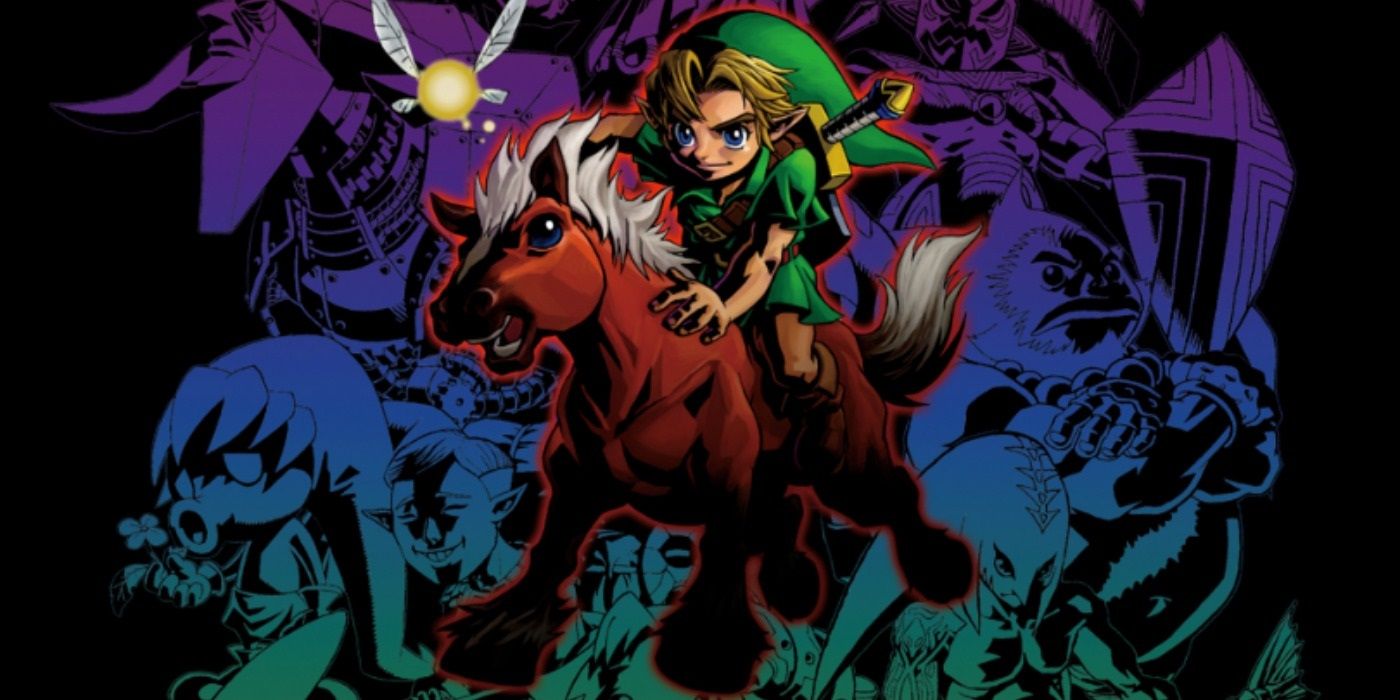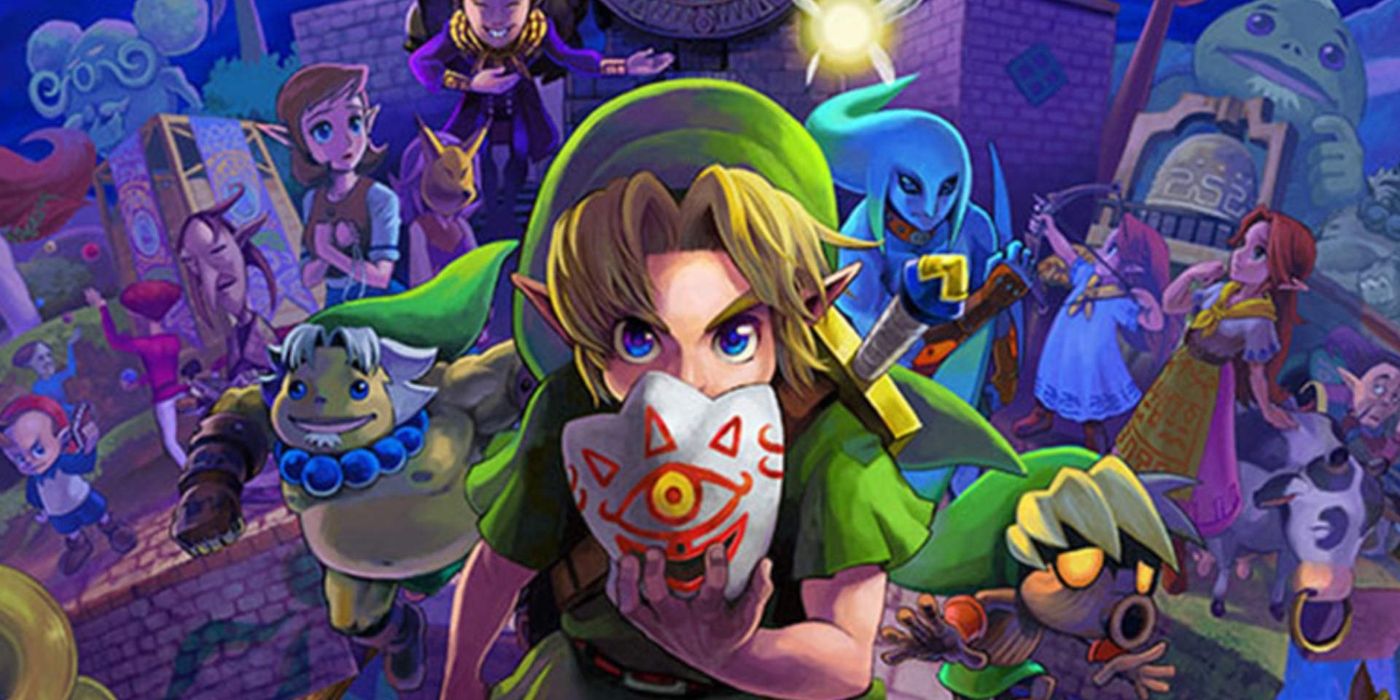
Nintendo's The Legend of Zelda: Majora's Mask reuses a lot of the character models from Ocarina of Time, and there are a few good reasons why this design decision was made. Majora's Mask is set in a land called Termina, in the timeline where Princess Zelda sent Young Link back to the past so that he could live out the years that he missed during the events of Ocarina of Time.
The land of Termina is a creepy place for a number of reasons, though the moon with the terrifying face that is slowly moving towards the ground is certainly a big one. The residents of Termina are reminiscent of the people of Hyrule, which has led to a number of Legend of Zelda fan theories about Majora's Mask showing a version of purgatory, with Link and all of the other residents of Hyrule trying to pass on into the next life.
Video games reusing assets is nothing new, as palette-swapping enemies and tweaking character models have been used as a shortcut since the early days of the industry. In the case of Majora's Mask, fans have often wondered whether the heavy reuse of assets from Ocarina of Time was a deliberate design choice, or was born out of necessity. Legend of Zelda producer Eiji Aonuma directed both Ocarina of Time and Majora's Mask, and he explained the connection between the two in an interview with Game Informer.

Majora's Mask was completed in a year, which is a staggeringly short amount of time for a video game of its caliber. This was only possible due to the framework laid down by Ocarina of Time, and many fans assumed that the heavy reuse of assets was a result of the short production schedule. Aonuma told Game Informer that the design choice was a mixture of factors, though the tight schedule was definitely one of them. According to Aonuma, the team wanted to be able to do different things with the character models for Ocarina of Time. Majora's Mask has a different tone to Ocarina of Time, and the developers could be more expressive with the characters in the land of Termina than they could in Hyrule. The idea of Termina being similar, but different to Hyrule allowed for the developers to do new things with familiar characters.
The concept behind Majora's Mask was tweaked during development, as it was originally intended to have a seven-day cycle instead of three. The logistics of making the game in such a short period of time meant that this aspect had to be shortened. It's unclear how different Majora's Mask would have been different if Aonuma and his team had been given more time, but there's a good chance that the characters from Ocarina of Time would still have appeared in The Legend of Zelda: Majora's Mask.
Source: Game Informer
from ScreenRant - Feed https://ift.tt/3AEgJyw

No comments: